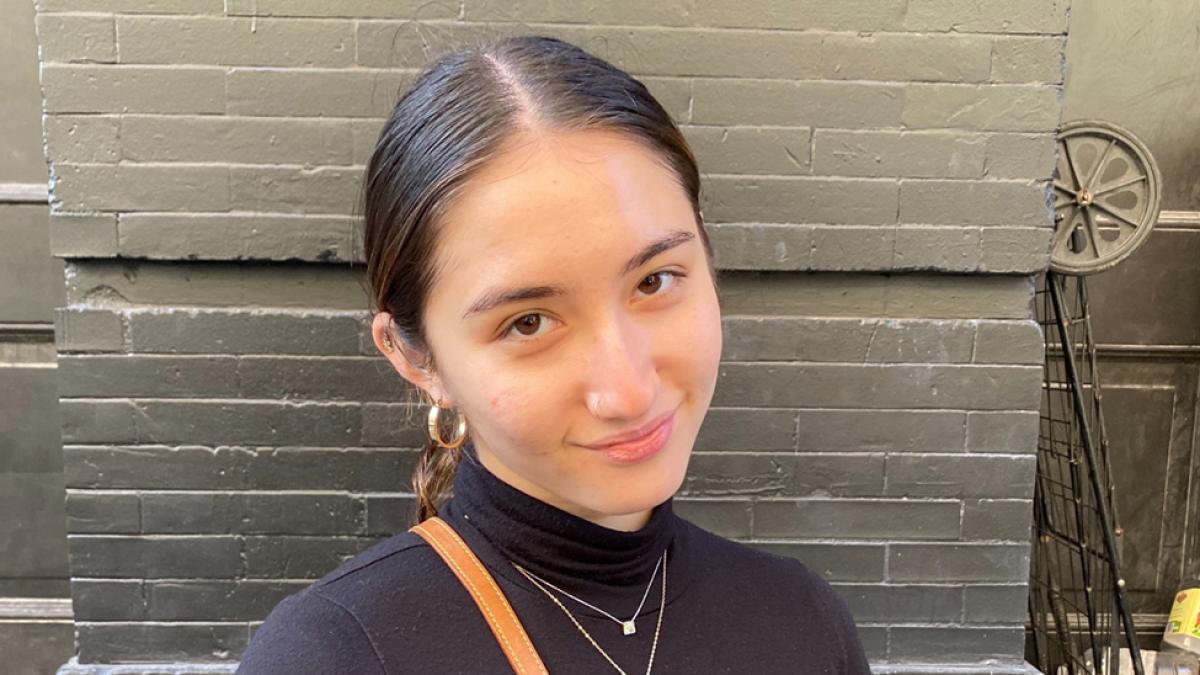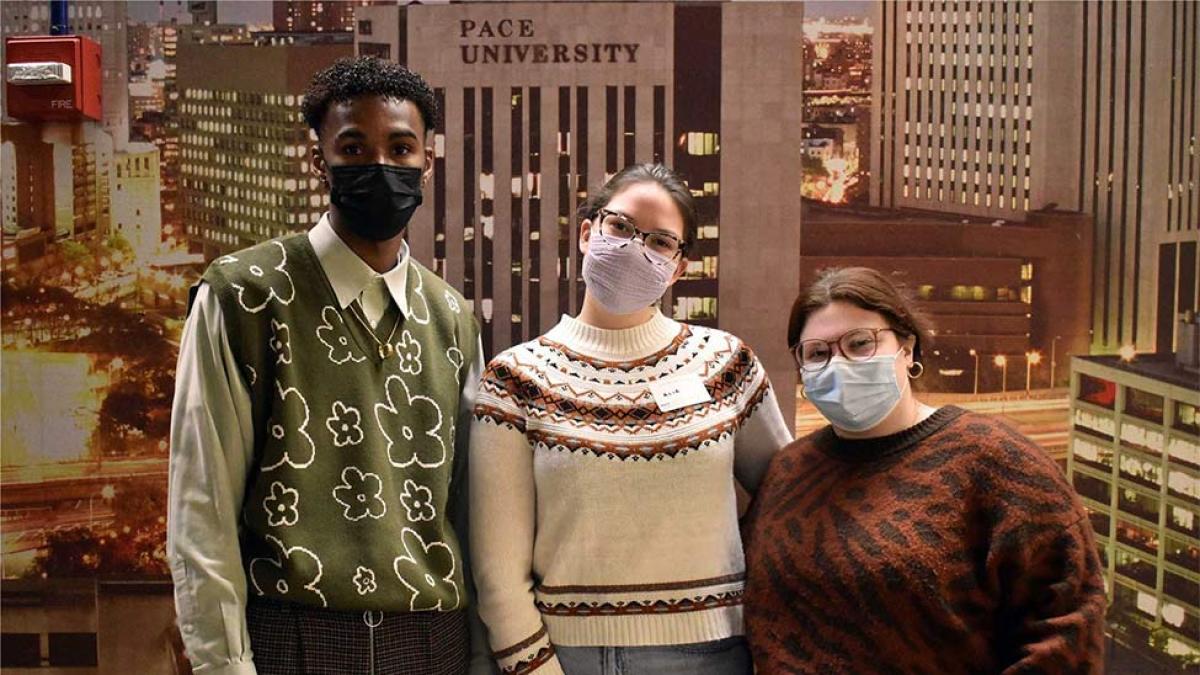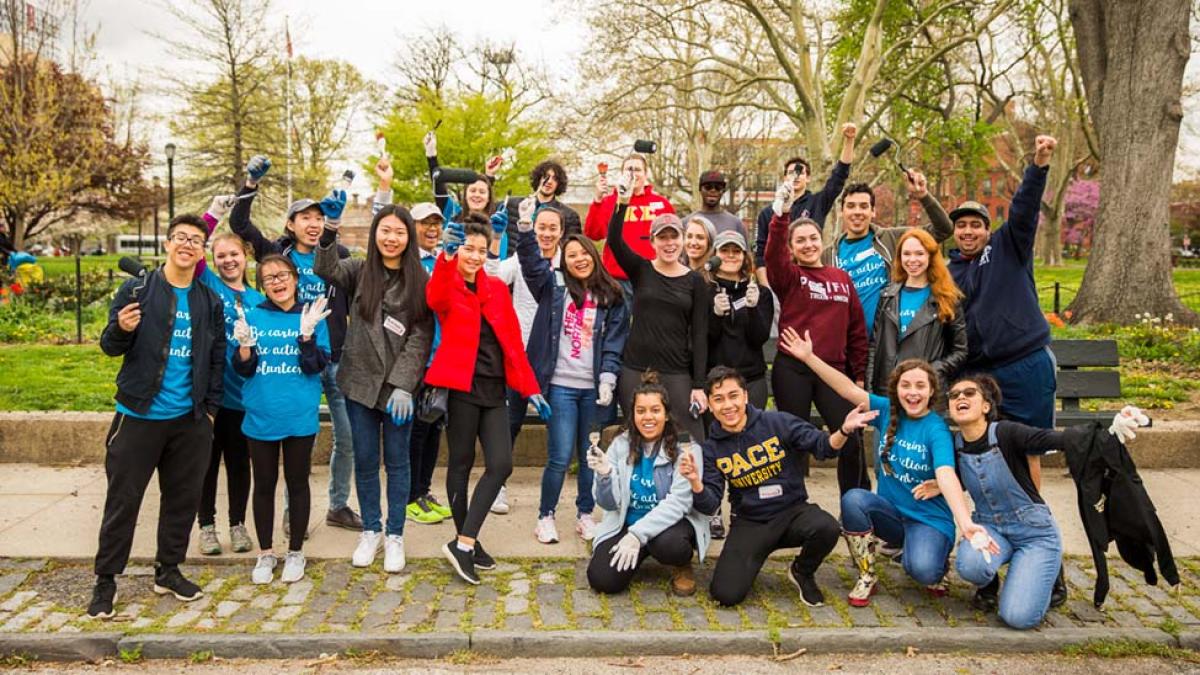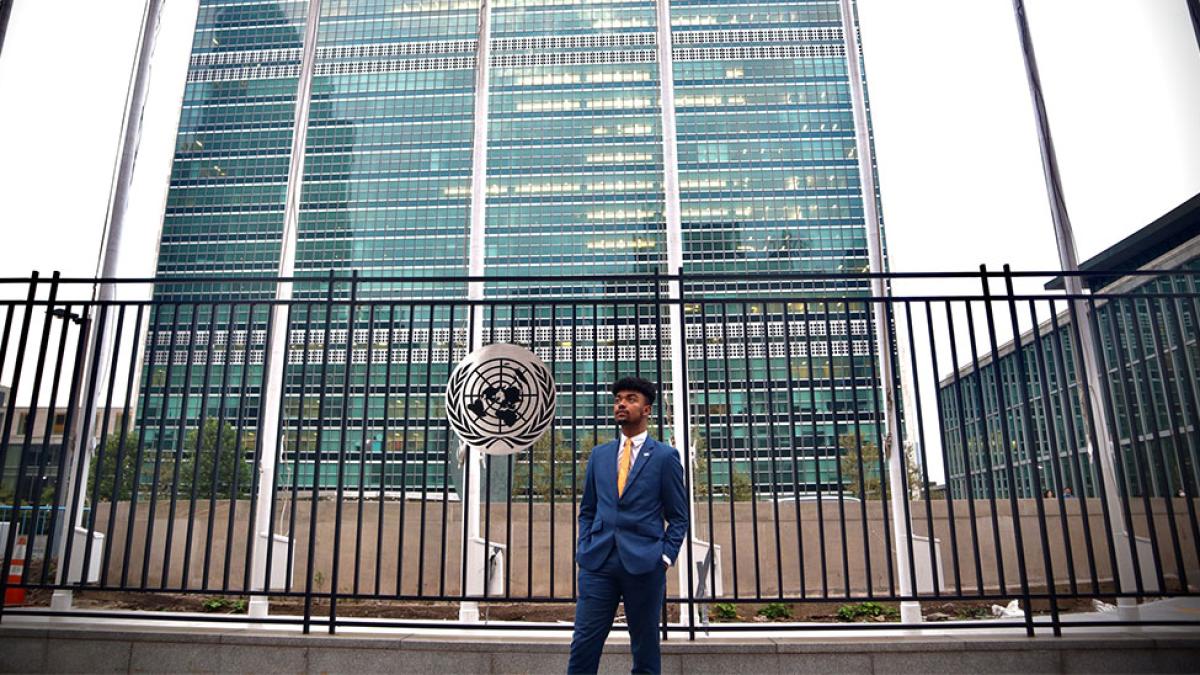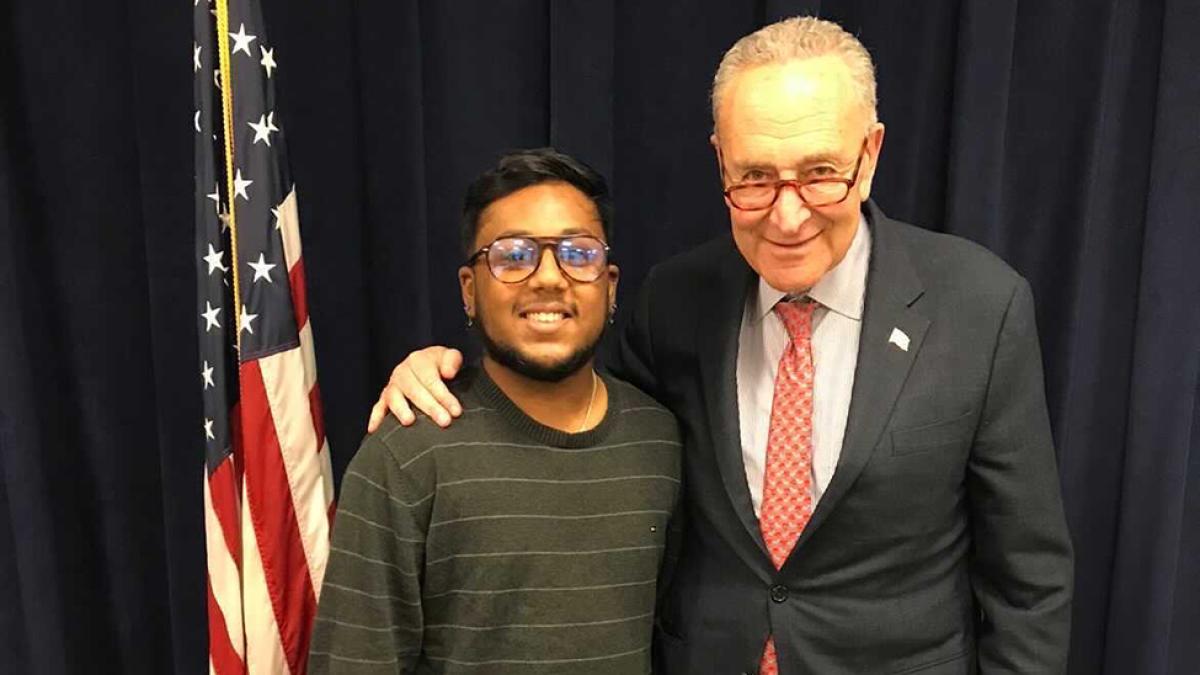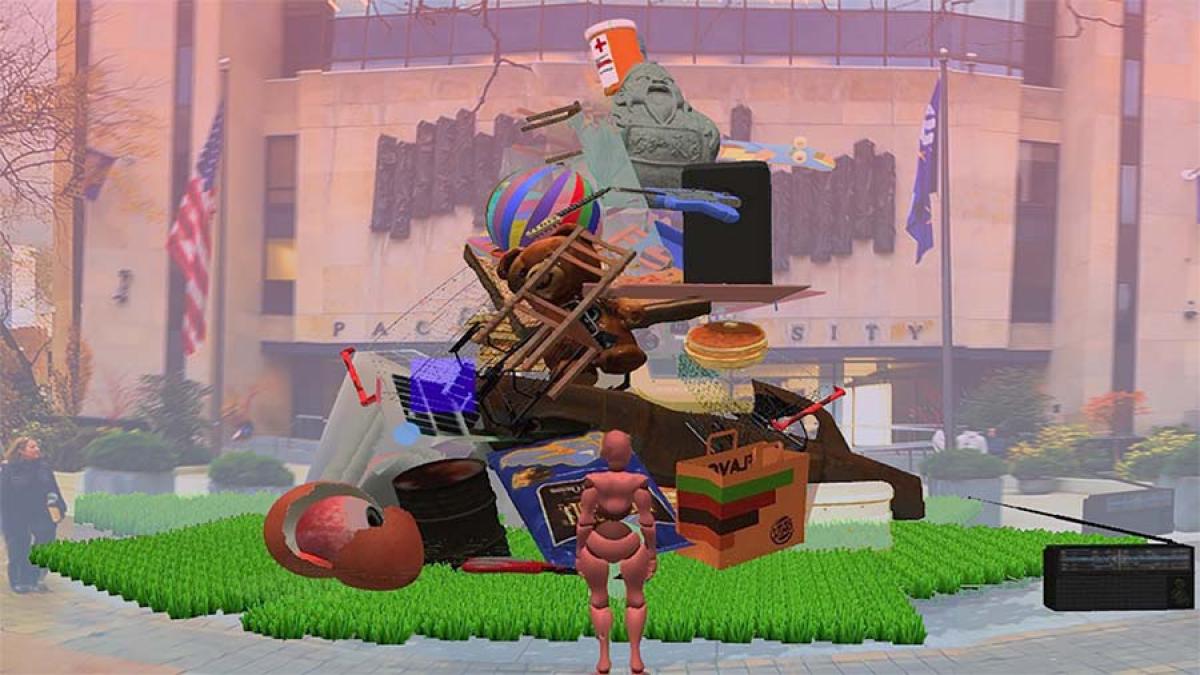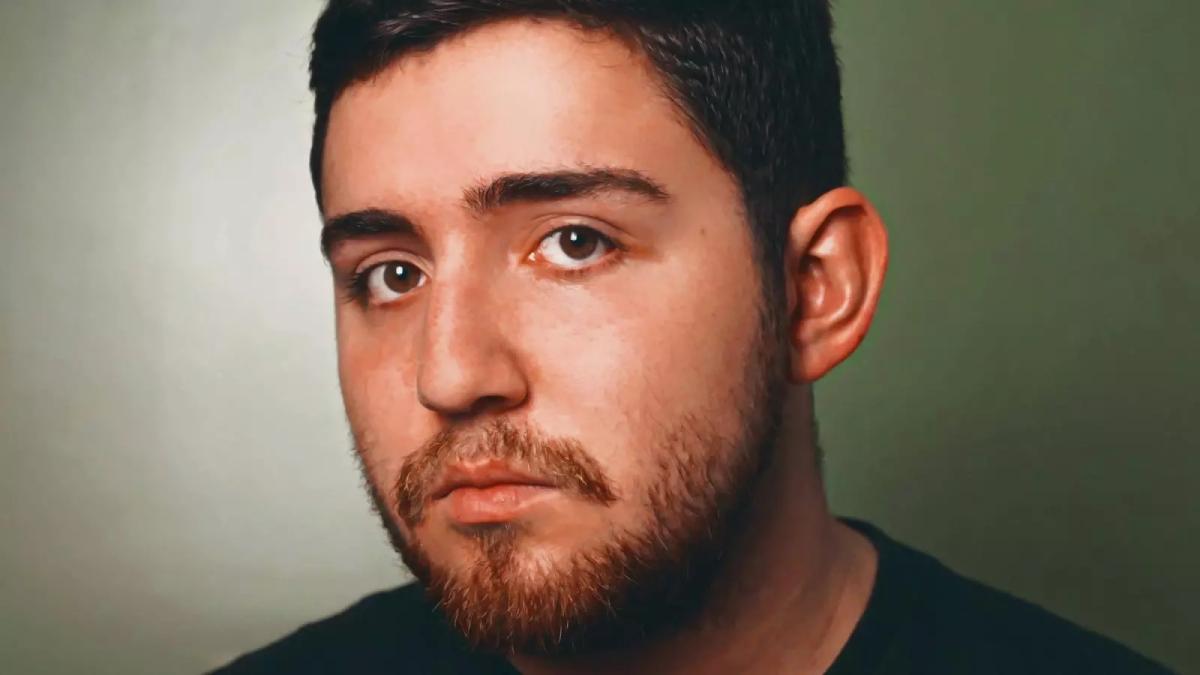
One Marine’s Mental Health Mission
During his time in uniform, Nicholas Lotto’s mission was to consider the welfare and mental health of his fellow Marines. Now, as president of Pace’s chapter of the Student Veterans of America, his old mission has a new backdrop—improving mental health and community inclusion of student veterans on campus.

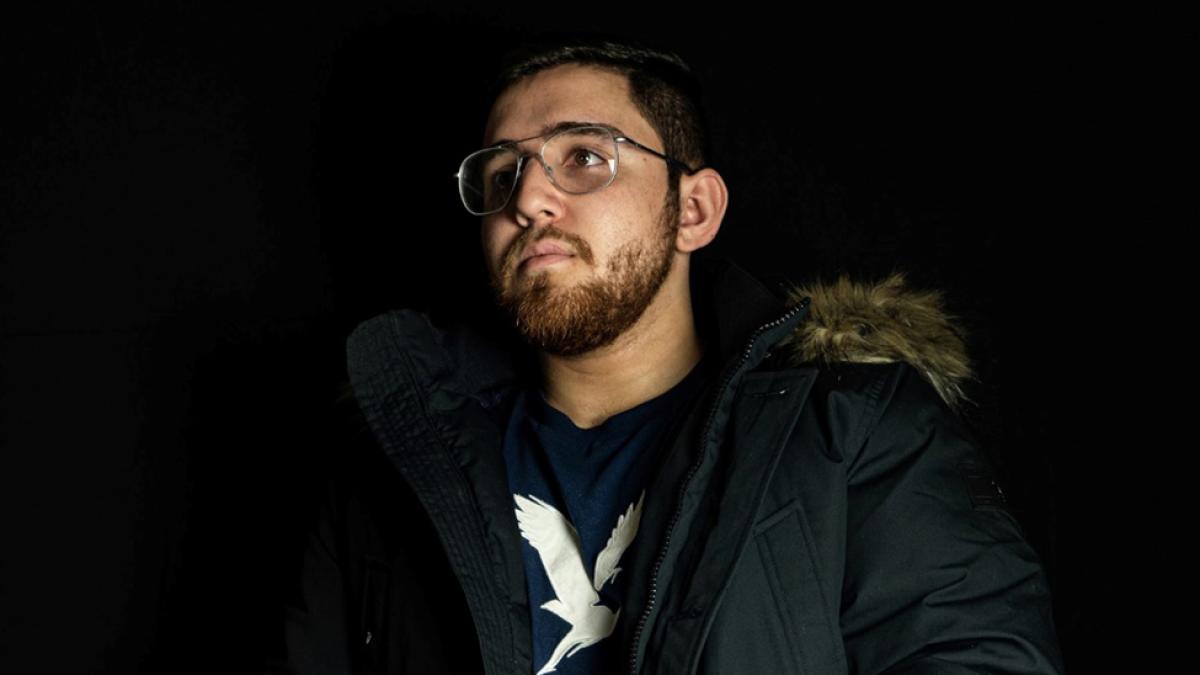
“I felt I was becoming someone that I didn’t want to be, and I wanted to be more independent.”
By his junior year of high school, Nicholas Lotto ’25 decided to join the less the one percent of Americans serving in the military. By his senior year, he decided on an even more unique position and enlisted as a Marine. “At that point, I had something to prove to myself and to the people that were doubting me, so I chose the toughest branch,” he says.

Now, Nicholas is in his second semester at Pace, majoring in accounting. He knew he wanted to go into business, and many of the connections he had made in the military were in accounting. He had jobs lined up, he just needed the qualifications. As he began to transition out of active duty and began researching colleges, Pace quickly became a standout.
“Pace University has an unlimited Yellow Ribbon program,” Nicholas explains. “Which means whatever our benefits through the GI Bill doesn’t cover, Pace covers the rest. Pace has a phenomenal veteran program.”
“At that point, I had something to prove to myself and to the people that were doubting me."
Accounting is a bit different from what Nicholas did in the Marine Corps, where he worked as an aviation operation specialist on one of the busiest airfields in the country, located in Yuma, Arizona. “I was in communication with the air traffic control tower and base command, wrote up flight plans for training aircraft, and basically managed the entire ground operations on the airfield,” he explains.
But when Nicholas wasn’t maneuvering a busy airfield, he was cautiously maneuvering the tricky minefield of improving the mental health of his fellow Marines, which was further exacerbated by a psychologically-taxing global pandemic.
Nicholas became involved with the Single Marine Program which is geared towards suicide prevention among Marines. “We work on getting Marines out of the barracks and to events to meet each other, to increase comradery and morale,” he says. “We also wanted to have an active presence in the community and that involved a lot of volunteer events. In addition to my actual job, I was responsible for the quality of life for about 1,600 marines through the Single Marine Program.”
“I’m happy to say I definitely made a difference in the Marine Corps when it came to mental health."
Nicholas was soon fully dedicated to improving the mental health of fellow Marines. Though his job on the airfield took up to 50 hours of work a week, his other billets (or roles), including his work with the Single Marine Program, easily extended his workload up to 100 hours.
“I’m happy to say I definitely made a difference in the Marine Corps when it came to mental health,” he says. “Analyzing it, being aware of it, how to deal with it. That’s something I was very focused on because it’s prevalent in the military. If you ask any other veteran, I guarantee you they know someone who lost their life to suicide.”
When he came to Pace, Nicholas immediately filled up his schedule and threw himself into his studies and soon took up a new billet—president of the Pace University Chapter of the Student Veterans of America. He now represents around 300 veterans and dependents across all three Pace campuses and is finding that the new mission is still the old mission—improving the mental health of veterans.
The first step is getting the veteran community on campus connected. According to Nicholas, “We want to restructure the entire program to make it easier for us all to communicate. My main focus, by the end of this year, is connecting each veteran and dependent through some form of communication.” Just this semester they launched a Discord server that has already brought new faces into the Veteran’s Center.
“At the end of the day I see us as one Pace, one community."
But just like in the Single Marine Program, Nicholas wants an active presence in the community at large, knowing the importance of connecting veterans to their wider community. “We lose 22 veterans a day to suicide,” Nicholas explains. “My mission carried over from the military into veteran-civilian life because I want to make sure the veteran community is well taken care of, and a lot of times they can be neglected because of their service or how people view them.”
Nicholas does not just want to open the lines of communication between veterans, but also with the entire Pace Community. Nicholas says, “There are a lot of people who have a bad perception of the military, and we want to change their minds. We’re not just here to help our fellow veterans, we want to help our fellow students.”
Though Nicholas is now a student, it seems once a Marine, always a Marine, and those ideals of dedication and service to his community persist. He says, “At the end of the day I see us as one Pace, one community. I want to do everything in my power to make sure everybody is taken care of. That’s my biggest goal here and that’s what I plan on doing for the next couple years.”
If you want to learn more about the Student Veterans of America chapter at Pace, email Nicholas at svanyc@pace.edu or join their Discord server. For information on Veteran’s services at Pace, visit the Veteran’s Office website.
Veteran Appreciation Week is November 7–11, 2022
Pace University salutes you for your bravery and service—on Veterans Day and every day. We recognize the commitment you have demonstrated to our country and are firmly committed to assisting you in advancing your career through higher education.
More from Pace
Through the Provost’s Summer Student-Faculty research program, Julian Clark ’25 delved deep into the multifaceted interplay between film-making and religious studies.
Mandi Karpo ’23, editor-in-chief of The Pace Press, recounts the extraordinary opportunity to attend the recent New York gubernatorial debate as the only student journalist in attendance.
For over four decades, Dyson’s Society of Fellows has nurtured outstanding interdisciplinary scholarship and continues to foster strong relationships amongst students, faculty, and alumni.
November 2022: A Message from President Krislov
With Election Day fresh in our minds, President Krislov reflects on the ways in which Pace has joined the wider conversation of civic engagement—from hosting New York’s only gubernatorial debate, to on-campus efforts by the Pace Community to support their peers, to multiple wins at the Model UN National Conference, and more.
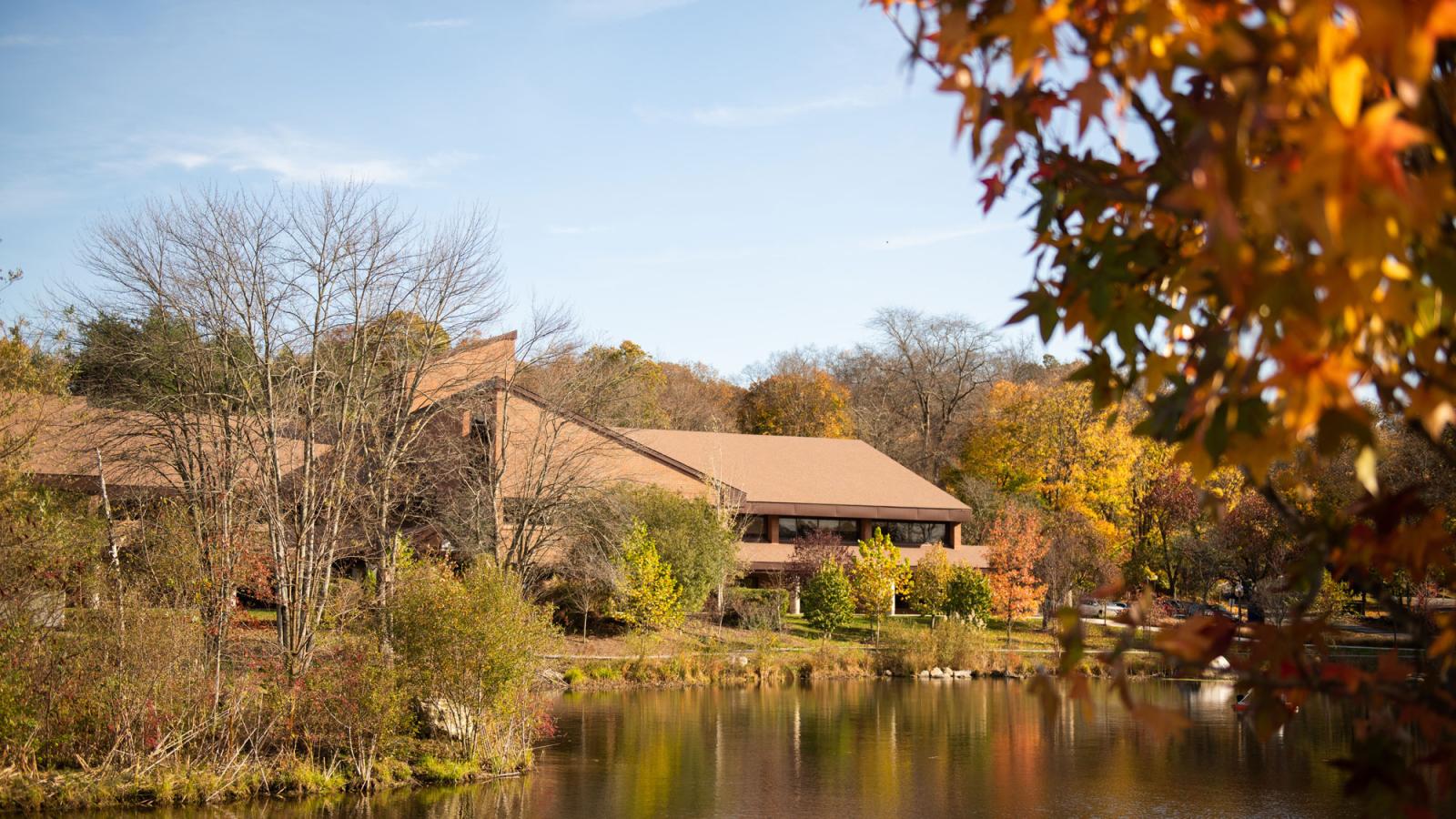
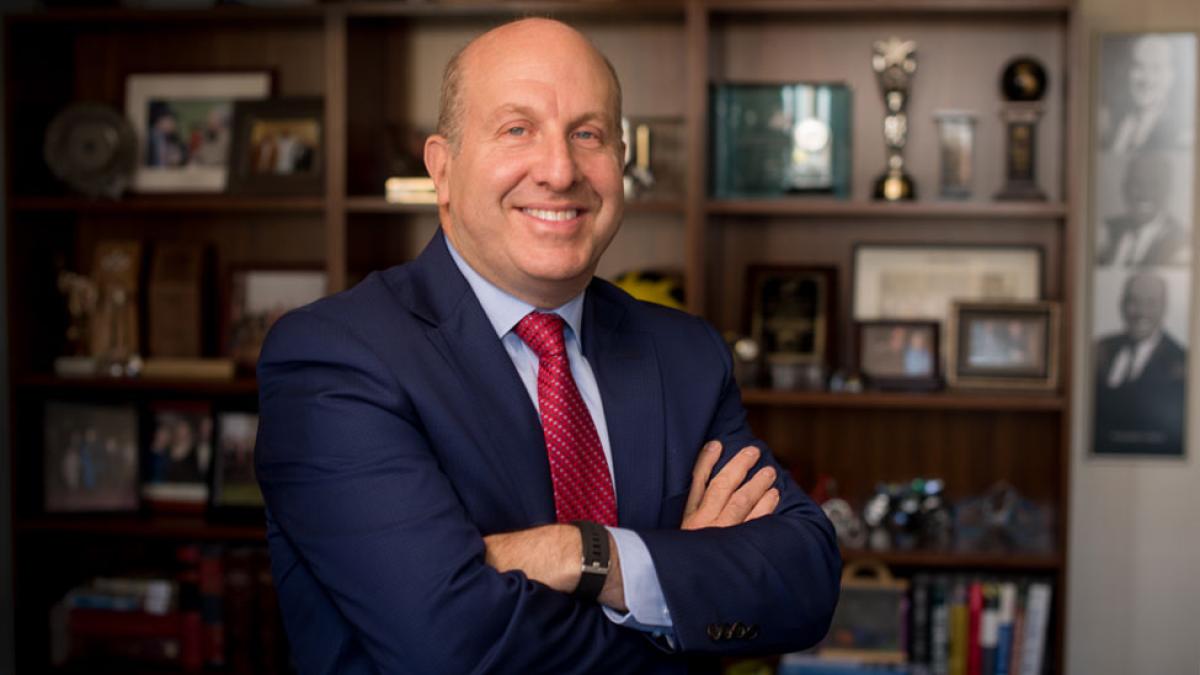
As we come out of yet another bruising election cycle—this time, for better or for worse, one in which not much ultimately seems to have changed—I find myself impressed anew by the civic commitment and involvement of so many in our Pace Community.
Two weeks ago, we hosted the only debate between Gov. Kathy Hochul and her challenger, Rep. Lee Zeldin, in the Schimmel Center on our New York City Campus. It was a great opportunity for Pace, which landed our name and logo in articles and photos around the state and across the country. It also showed our political leaders — and our partners at Spectrum News NY1—what the people of Pace are capable of accomplishing. Our team of student volunteers, under the expert leadership of our Public Affairs team, were perfect hosts and ideal ambassadors for us, and Dyson student Mandi Karpo, editor-in-chief of The Pace Press, was lucky to be the sole student journalist in attendance. (You can read about her experience here.)
Elsewhere in this issue of Pace Now, you’ll read about many other kinds of civic engagement at Pace. You’ll learn about Lubin student Nicholas Lotto, a former Marine and president of Pace’s chapter of the Student Veterans of America, who is working to support the mental health of all our student veterans. Our environmental commitment has once again earned Pace recognition on the Princeton Review list of green colleges. You’ll read about the impressive accomplishments of the budding diplomats on our United Nations team. And as the Thanksgiving season approaches, CCAR, which did so much to help make sure our students voted in yesterday’s elections, offers a guide to giving back.
In the spirit of the season, I’m grateful to see that it’s finally turning properly autumnal here in the New York region. The weather is brisk and the leaves are vibrantly colored, but of course it’s also getting dark earlier and earlier. As we move into the winter months, I want us all to remain aware of our mental health and wellbeing. We’ve all been through a very challenging few years, and now we’re entering what is often a tough season. Please take care of yourselves, be kind to yourselves, and reach out for any help you need.
At Pace, we’re all committed to supporting one another. And together we will accomplish great things.
Have a great fall and a happy Thanksgiving—and keep your eye out for Pace’s Giving Tuesday campaign right after the holiday!
More from Pace
During his time in uniform, Nicholas Lotto’s mission was to consider the welfare and mental health of his fellow Marines. Now, as president of Pace’s chapter of the Student Veterans of America, his old mission has a new backdrop—improving mental health and community inclusion of student veterans on campus.
With the holidays approaching, Pace’s Center for Community Action and Research is here to help students, staff, and faculty find ways to connect with and give back to their community.
For more than a decade, Pace’s Model UN teams have been competing on the national stage. This year was no different! Back again with some more wins under their belts, Pace’s Model UN team shares their winning experience at this year’s national conference in Washington, DC.
Cybersecurity and your business
Haub Law Professor Jonathan Bandler writes about cybersecurity:
Cybersecurity is important for every business so we now tour some essential basics. Cybercrime has created a unique mix of criminal and civil issues that affect business and consumers and the legal requirements are growing. Cybersecurity is about people and their decisions.
Best Car Insurance in New York (2022)
Lubin School of Business Professor Larry Chiagouris was featured speaking about Best Car Insurance in New York:
Why are car insurance prices so different from state to state?
There are important differences from state to state, including the incidence of accidents per mile driven by drivers and the costs of repairing vehicles. These differences account for some variation in insurance costs.

The Pandemic Impacted A Generation Of Students. We Need To Give The Support They Need To Succeed
The stream of headlines has been steady: The pandemic, and the shutdowns necessary to limit its spread, caused significant learning loss among America’s students. They both learned less and became less socialized when schooling was remote. The result was a dramatic drop in K-12 math and reading scores, as demonstrated in the recent release of what’s called the nation’s report card. Those who were hurt most were those who were already disadvantaged.
Pace’s Model UN Teams Score Major Accolades
For more than a decade, Pace’s Model UN teams have been competing on the national stage. This year was no different! Back again with some more wins under their belts, Pace’s Model UN team shares their winning experience at this year’s national conference in Washington, DC.

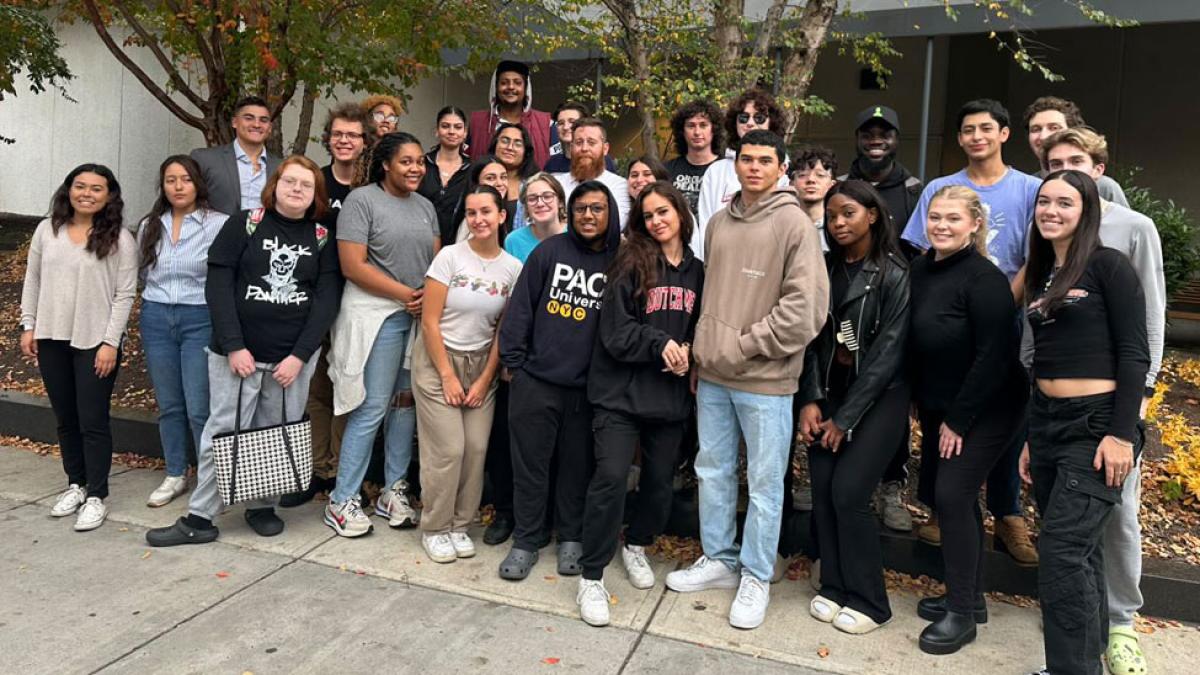
For more than a decade, Pace’s Model UN teams have been competing on the national stage. This year was no different! Back again with some more wins under their belts, Pace’s Model UN team shares their winning experience at this year’s national conference in Washington, DC.
The national conference is one of the largest in the country and brings together a multitude of universities for a weekend of intense negotiation and deliberation about a variety of topics of international concern.
“Without downplaying the significance of the student's academic achievement this weekend, I think the thing students will take away from the experience that has the most indelible impact will be the connections and friendships that they have made,” says faculty advisor and Pace assistant professor of Political Science Paul Londrigan. “Participation in Model United Nations had a way of stitching disparate individuals together who may not have otherwise found the occasion to get to know one another. I think that a huge benefit of the program is the way in which it lends itself to the creation of a richer and more textured social fabric for our students.”
“We are very fortunate at Pace to have a tremendously engaged body of students in the political science department. As a result, we have a long history of success and achievement at Model UN conferences,” says Londrigan.
Pace’s team from New York City represented Montenegro and Bolivia, while the Westchester students represented Guatemala. The Pace team won an award for Honorable Delegation for their representation of Bolivia. Several Pace students were also recognized individually at this year’s conference. Jordan O’Connell and Marsela Vucaj won the award for best position paper in their committee and students Jeremiah Williams and Noah Saskowski were recognized by their peers in the committee and were awarded the outstanding delegates in a committee award.
“We are very fortunate at Pace to have a tremendously engaged body of students in the political science department. As a result, we have a long history of success and achievement at Model UN conferences,” says Londrigan. “Despite this winning track record, it never gets old to see the delight on student's faces when they hear that they have won.”
More from Pace
"To be able to share the stage with my classmates and living in New York City is truly a blessing. Being taught by the best of the best is truly an honor," said Victoria Beaudion '23, BFA Commercial Dance.
Pace's Maria Escobar is the co-founder of the World Without Exploitation National Youth Coalition—a network of young people dedicated to ending human trafficking—and she’s presented at the United Nations Commission on the Status of Women.
Jeremiah Williams ‘23 has always been a talker. From his high school debate team to addressing the United Nations First Committee, Jeremiah recognizes the power of speaking up when it counts.
Pace Environmental Law Review Announces First Winner of the John R. Nolon Student Writing Competition, 3L Christen Maccone
At the Pace Environmental Law Review (PELR) Symposium held on October 28, PELR announced Haub Law 3L Christen Maccone as the winner of the John R. Nolon Student Writing Competition, held for the first time this year. Christen’s article entitled, Should Environmental Protection be Through Anthropocentric Rights?, addresses the issues with human-centered, instead of eco-centered, environmental rights, in keeping with the Symposium’s theme of “Environmental Constitutionalism.” Christen’s article will be published in the Pace Environmental Law Review next year.v
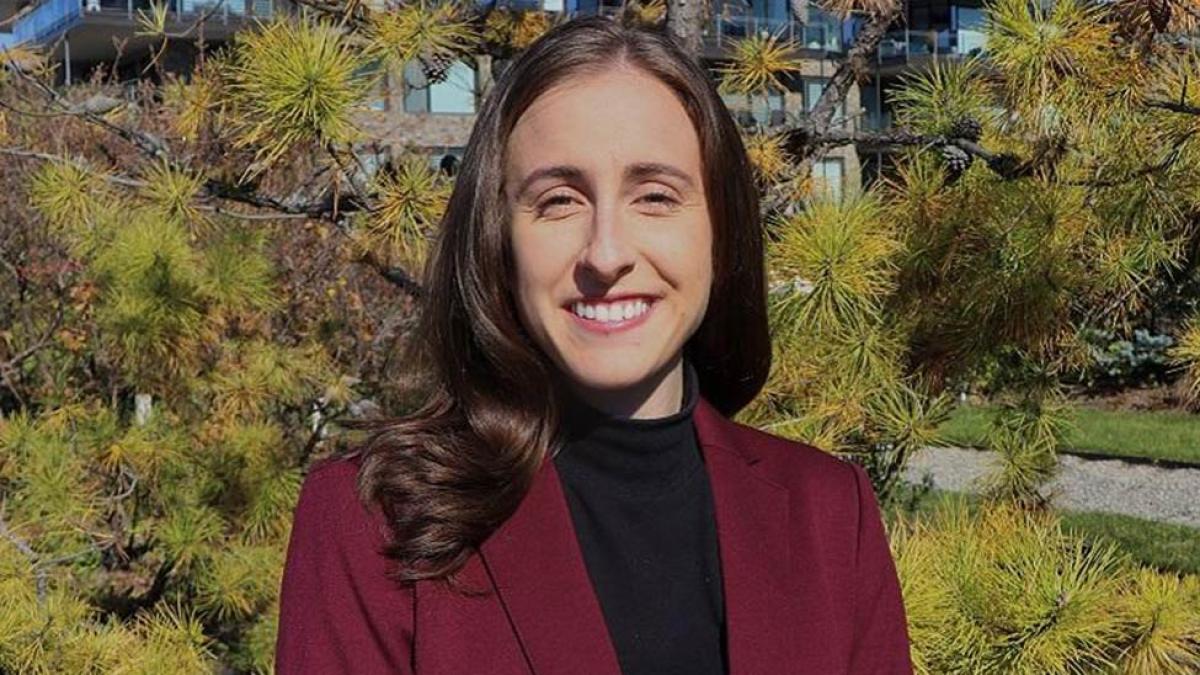
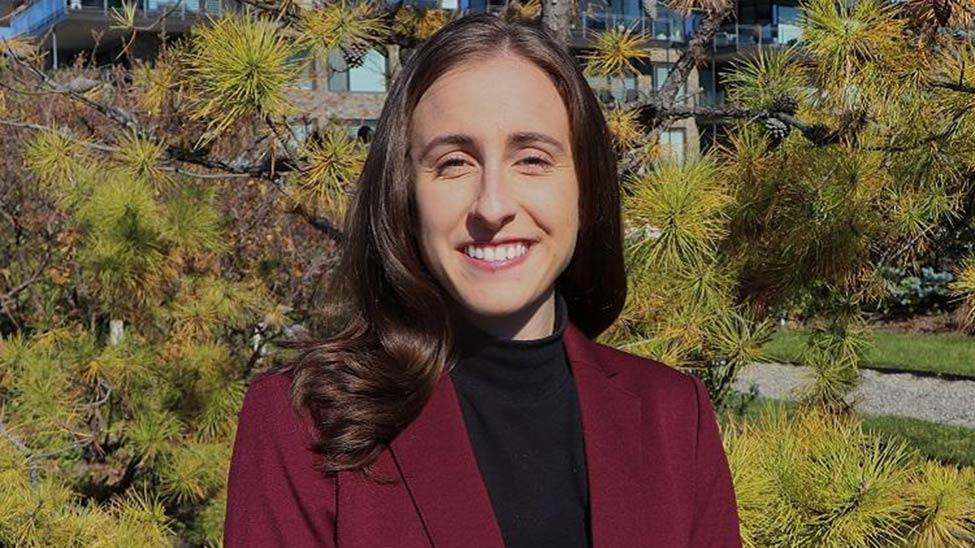
At the Pace Environmental Law Review (PELR) Symposium held on October 28, PELR announced Haub Law 3L Christen Maccone as the winner of the John R. Nolon Student Writing Competition, held for the first time this year. Christen’s article entitled, Should Environmental Protection be Through Anthropocentric Rights?, addresses the issues with human-centered, instead of eco-centered, environmental rights, in keeping with the Symposium’s theme of “Environmental Constitutionalism.” Christen’s article will be published in the Pace Environmental Law Review next year.
“The law’s protection of the environment is historically tied to humanity’s use of the environment,” said student competition winner, 3L Christen Maccone. “Constitutional environmental rights, while creating a possibility to afford further protection, inevitably fall short in this same way because of the way constitutions work. Through a biocentric approach, better protections can be afforded to the environment, beyond its known worth to humanity. The Professor John R. Nolon Student Writing Competition gives a spotlight for students amongst scholars, advocates, regulators, policymakers, and other practicing professionals, to share their ideas on a growing area of law. This competition serves as proof that students, though still in school and not yet practicing, can be at the forefront of emerging areas of law.”
This annual competition is open to students at law schools throughout the country. The first place award carries the promise of publication in PELR and a $500 scholarship. The competition, named after Elisabeth Haub School of Law at Pace University Distinguished Professor of Law Emeritus John Nolon, honors Professor Nolon’s dedication to student scholarship. Professor Nolon supervises student research and publications regarding land use, sustainable development, climate change, housing insecurity, racial inequity, and the coronavirus pandemic at Haub Law. He is also co-counsel to the Law School's Land Use Law Center, which he founded in 1993. He served as Adjunct Professor of land use law and policy at the Yale School of the Environment from 2001-2016. Before he joined the law school faculty, he founded and directed the Housing Action Counsel to foster the development of affordable housing.
The Thoughtful Filmmaker
Through the Provost’s Summer Student-Faculty research program, Julian Clark ’25 delved deep into the multifaceted interplay between film-making and religious studies.
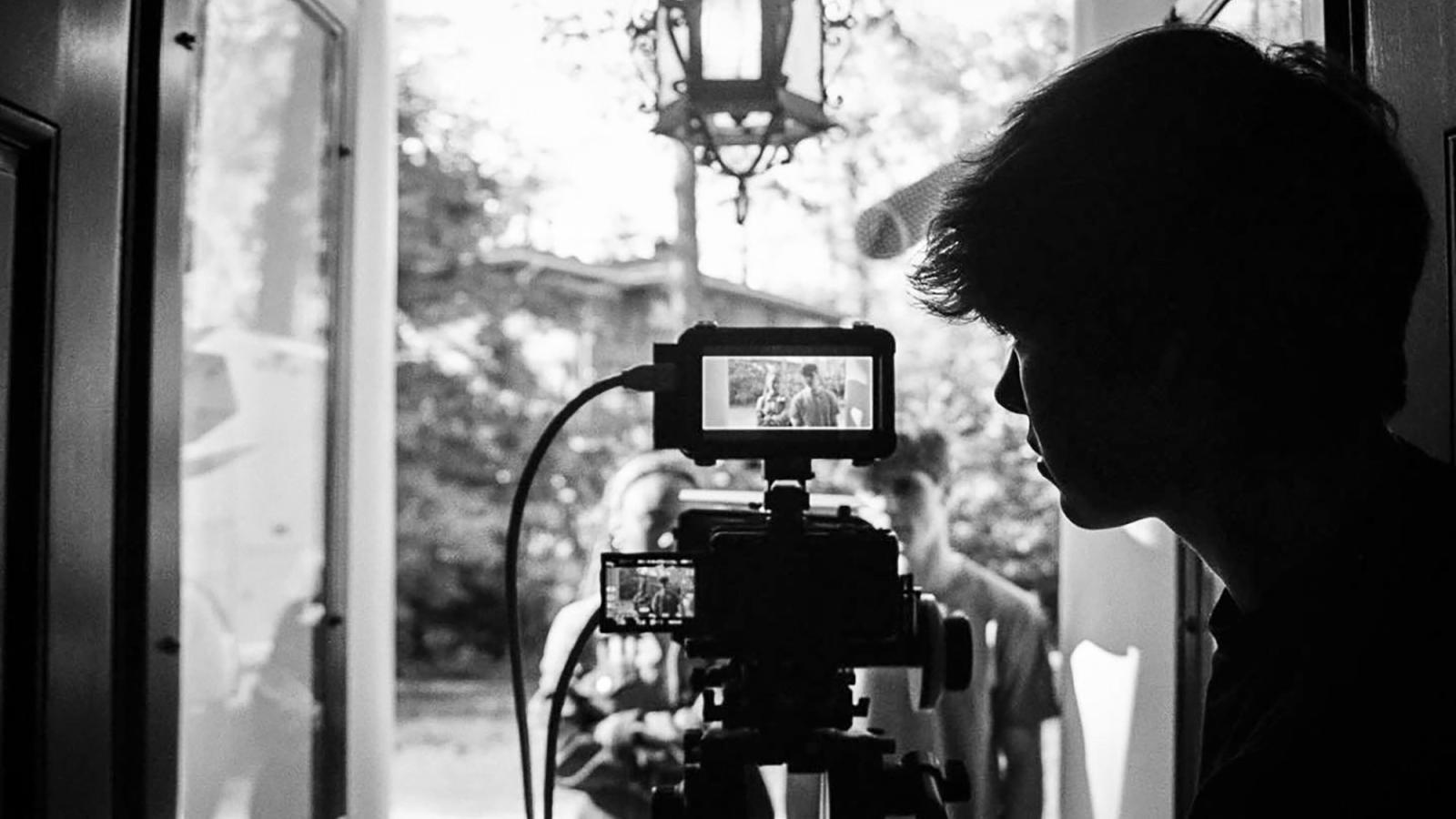
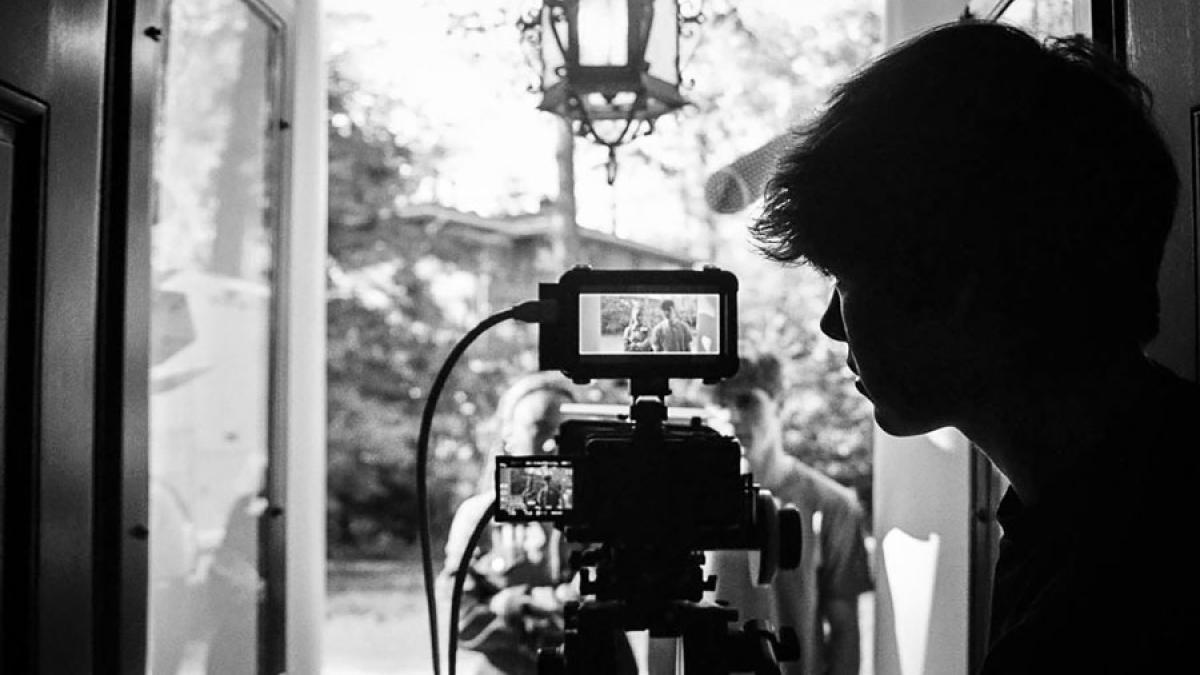
Julian Clark ’25 has long been fascinated by religion, and the role it plays in both the lives of individuals and groups. Growing up in the Methodist and Baptist churches, Julian began to think deeply about the endless well of ever-complex issues relating to religion. Eventually, he merged this curiosity with another strong interest of his—film—and as a high schooler, directed a film titled The In-Between Hour, which Julian describes as “an alternate look at the concept of purgatory and the self-expressive presumption of ego.” The film premiered in July 2021, raising $500 for Mental Health America.
When Julian arrived at Pace a few months later, he was planning on taking his interest in film even further, majoring in film and screen studies while planning on using New York City as the ultimate backdrop for movie-making. Yet, the pull of religious study remained strong. In his first semester, Julian took a class titled Introduction to the Study of Religion, taught by Philosophy and Religious Studies Assistant Professor Daniel Barber, PhD. In the class, Julian was able to further explore ideas pertaining to how religious studies is approached. He also became interested in the concept of religious formation around material goods, and the ways in which religions evolve over time to meet the needs of the current moment.
“Religions are and will continue to be made and corrected based off the needs of the current era,” says Julian. “Christianity has evolved dramatically from what it was in the past—it reflects the lives of people now. I wanted to conduct research around the origins of faith, how these practices are meeting the needs of the present, in order to understand how in the past, they were made fit to meet the needs of the past.”
I wanted to conduct research around the origins of faith, how these practices are meeting the needs of the present, in order to understand how in the past, they were made fit to meet the needs of the past.”
Julian’s appetite for further exploration around these topics naturally coincided with his interest in film. After discussing his ideas with Barber—who helped him solidify his focus and offered further research recommendations—Julian developed a research proposal, and was successfully accepted into the Provost’s Summer 2022 Student-Faculty Research program.
His project, Religion and Non-fictitious Film-making: The Fallacy of "Accurate Portrayal", explores the relationship between faith and filming. As Julian uncovered—through both filming sessions around New York City, as well as intense study of religious and film scholars ranging from Trinh Minh-Ha to Jean-Luc Godard to Talal Asad—this relationship is inevitably fraught, as faith is a task unobtainable for film-makers to wholly capture. Julian likened it to an unspoken violation of a moral code.
“What I started to realize was that there was no real way that I could document a participant's experience without infringing on a moral code. This idiosyncratic connection is something that you’ll never truly be able to capture the truth of someone’s relationship as a foreigner to these credences—especially with something like religion, which is so incredibly personal, and so complexly tied to such a shared social context, that it ends up preventing diligent film-making from those who seek it.”
Julian’s experiences culminated in an academic research paper in which he explores this relationship in great detail—as well as the ways in which religious connectivity can and cannot be captured through film. In addition to possibly submitting the paper for academic publication, the experience has reframed how he approaches filmmaking, as well as his Pace experience going forward—fittingly, Julian is now a double major in both Film and Screen Studies and Philosophy and Religious studies.
As he continues both his collegiate and filmmaking career, he hopes to take what he’s learned from his experiences and research to push and explore boundaries in the unique space where filmmaking and religious studies co-exist.
“The research really inspired me to go deeper, and not just look at the formation of religion, but to think about faith as a unique social experience,” said Julian. It changed how I am going to film moving forward.”
More from Pace
Provisions, a Bhandari Jain Family Food Pantry, is one of Pace’s hidden gems. Get the inside scoop on Denise Santiago’s journey opening a food pantry, and how Provisions is helping fight food insecurity on the New York City Campus.
In his second semester, he interned for a Manhattan Borough President campaign. Last semester, he interned for Senate Majority Leader Charles Schumer’s district office. As a second-year student, Aman Islam is demonstrating what it means to be a go-getter, and he shows no signs of stopping.
Through Digital Trash, an augmented reality art exhibit, Professor Will Pappenheimer and his mobile media students are elucidating an often-unseen problem in a truly innovative way.
The Importance of Giving Back: Jan Mansley '90
Jan Mansley '90, Dyson Advisory Board member and vice president of NOVA Hope for Haiti, discusses her life-changing decision to devote her life to others, as well as how and why students should get involved in a greater cause.
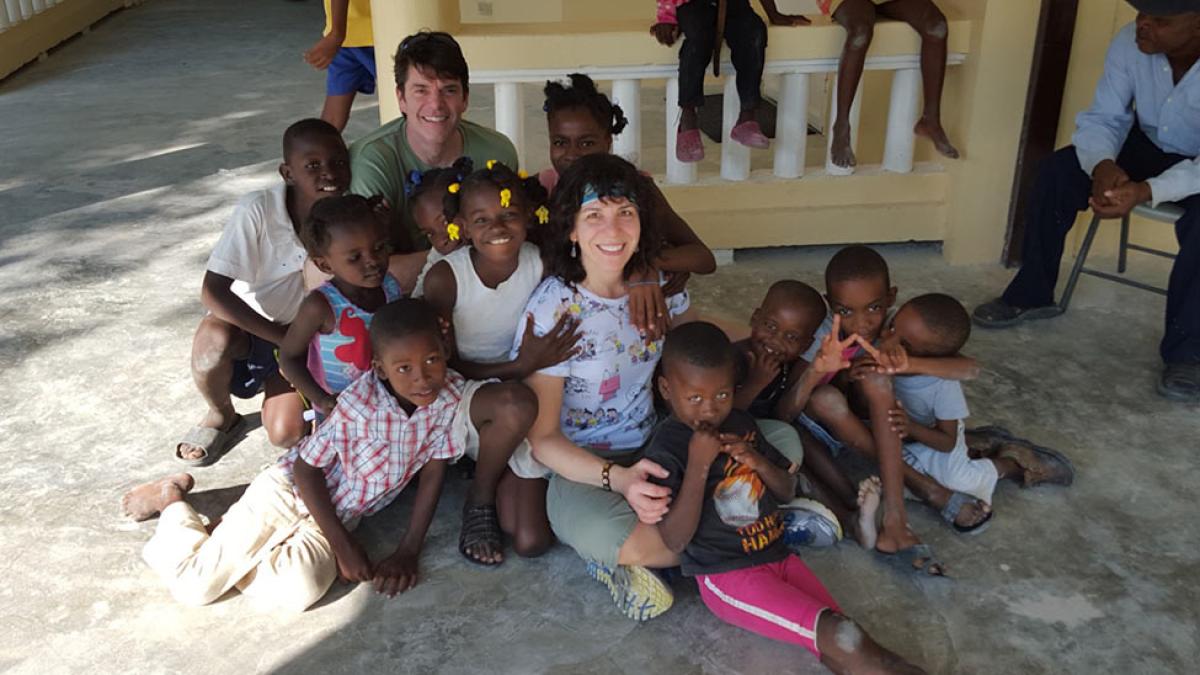
Dyson Advisory Board member Jan Mansley ’90, MBA (Lubin), has found her passion in giving back. After a successful career in banking and raising two children, Mansley now serves as the vice president of NOVA Hope for Haiti, an organization that provides medical care through permanent clinics and frequent missions to Southwest Haiti.
Mansley met her husband, Tom ’89, Math, MBA (Lubin), at Pace University, and both emphasize the importance of improving the lives of others. In addition to both serving on the Dyson Advisory Board and working with NOVA Hope for Haiti—Tom is the treasurer—the couple established The Tom and Jan Mansley Endowed Scholarship, which is awarded annually to a Dyson math student. Community service experience is a requisite for the scholarship.
In her interview with Director of the Center for Community Action and Research Heather Novak, MPA, Jan encourages current Pace students to get involved with volunteering to help others while developing valuable personal and professional skills.
Math students can apply for The Tom and Jan Mansley Endowed Scholarship by November 28, 2022. Students interested in volunteering can visit the Center for Community Action and Research.
Turning Real-life Research into Impactful Advocacy
Through the Master of Public Administration program and a partnership with the Westchester Children's Association, Sydney Moraitis '22 helped spearhead a survey that's drawing attention to digital access inequities among Westchester County families with children in grades K-12.
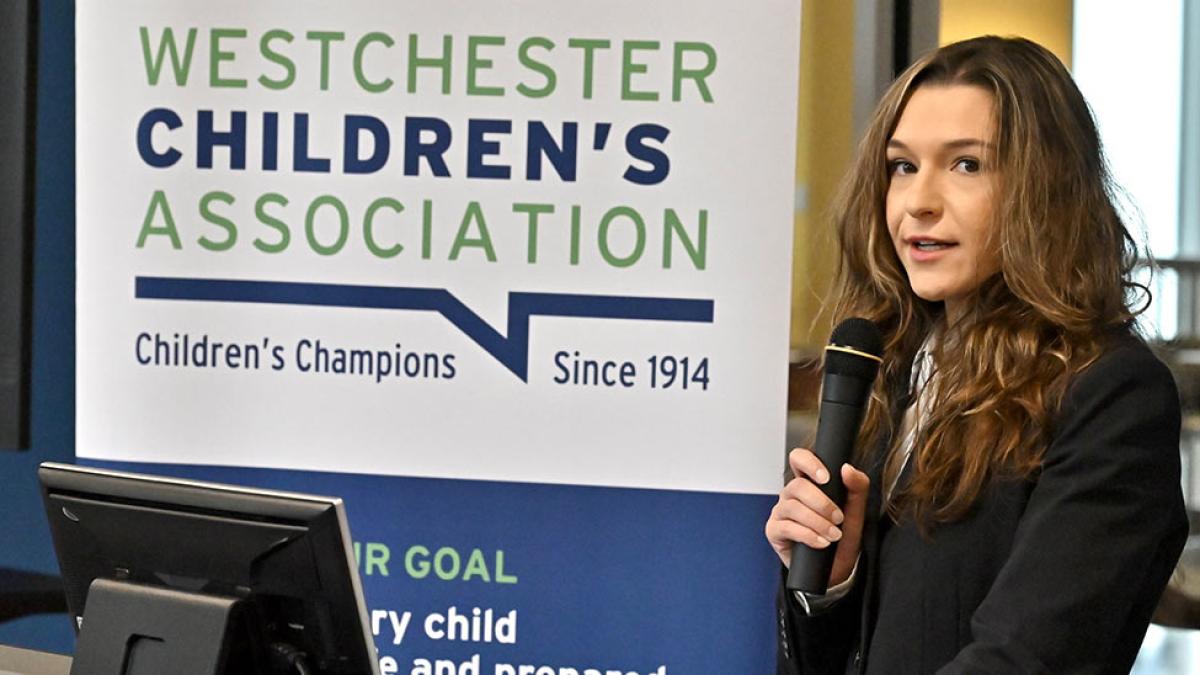
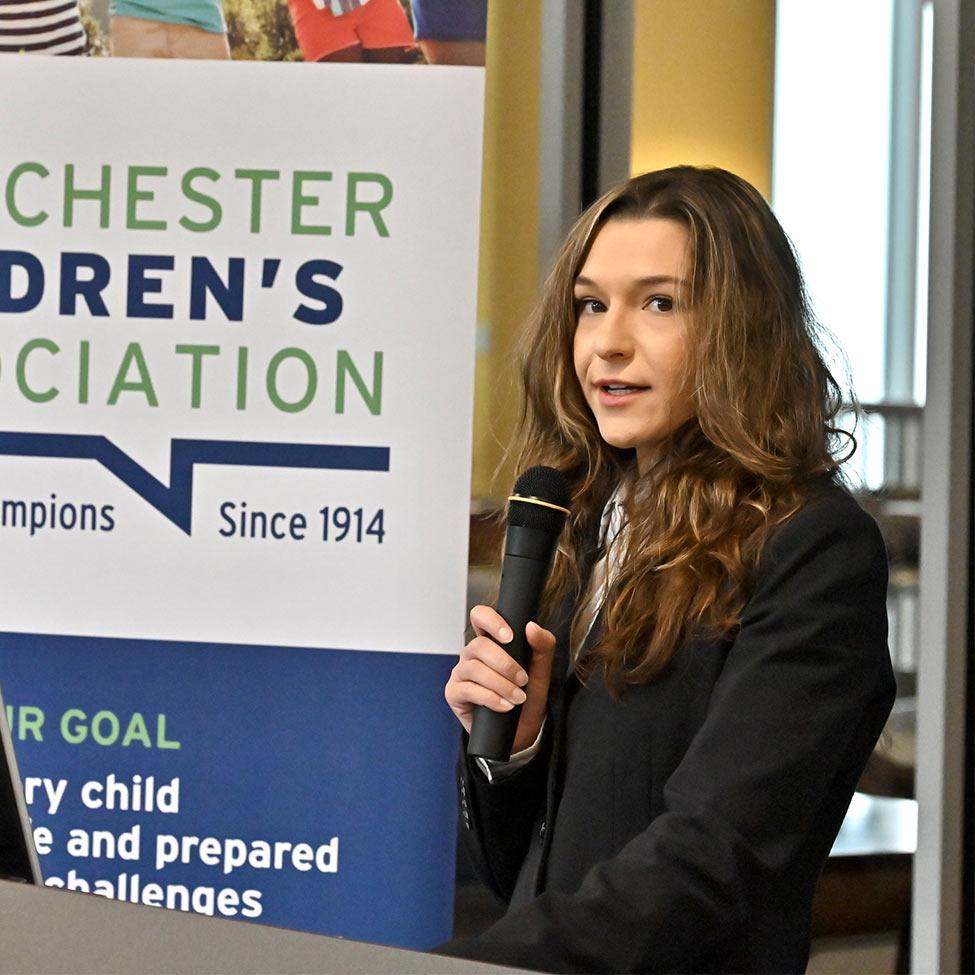
At the heart of Pace University’s Master of Public Administration (MPA) program is the conviction that thoughtful research has the power to spur meaningful change. Sydney Moraitis ’22, MPA, has experienced that firsthand.
In partnership with the Westchester Children’s Association (WCA), Moraitis and Associate Professor and Director of MPA Gina Scutelnicu-Todoran, PhD, spearheaded the “Digital Access Survey: Perceptions of Parents in the K-12 Schools of Westchester County, New York,” which surveyed families on their digital access, skills, and knowledge. Moraitis and WCA then presented the findings of the survey at a press conference on Pace’s Westchester campus in October.
“The Covid-19 pandemic affected both students and families as their daily use of technology increased, which exacerbated the pre-pandemic digital divide,” said Moraitis. “To provide support for those who lack technology access in terms of devices and skills by means of training, identifying what the needs are in a community is an important first step.”
Embracing the Process
This survey was a follow-up to a study conducted during the height of the pandemic that MPA graduate Greg Rivera ’21 had assisted WCA in conducting as part of his capstone project, focusing on the impact of remote learning on K-12 families in Westchester. Rivera and his mentor, Scutelnicu-Todoran, presented the recommendation for a follow-up survey a year later.
Moraitis’s involvement was a bit serendipitous. She inquired about working on a project with Scutelnicu-Todoran and mentioned an interest in educational policy. Scutelnicu-Todoran connected Moraitis with WCA, and this time, the Pace MPA team owned the entire survey process, from origination to dissemination to evaluation. While the original survey focused specifically on remote learning, this year’s iteration focuses more broadly on families’ access to and comfortability with reliable internet and technological devices.
Moraitis noted that the biggest challenge in conducting this year’s study was getting the survey to as many families as possible. “We believed that it was important to make efforts to include the voices of those who didn’t have access to an electronic device,” she said.
Moraitis and the team then met with a number of WCA’s partner organizations in the area, persuading them to distribute hard copies of the survey to families in both English and Spanish and set up physical drop boxes for collection.
Presenting the Results
Upon analyzing the results, the survey demonstrated an inequity in technological access between children and families from under-represented groups and their peers in Westchester County. Among the 511 parents and guardians surveyed, 27 percent said they experienced stress related to technology at least once a week, while 31 percent felt technology made their children’s learning more difficult. The survey also revealed evidence that participants who were of Hispanic/Latinx descent and whose primary language was not English were less likely to have internet access.
“We hope the survey findings will assist local leaders and stakeholders in determining the best ways to provide services to improve digital access and digital literacy so that both children and their families are well equipped to participate online,” said Moraitis.
Scutelnicu-Todoran connected the results directly to recommended policy and action aimed at narrowing the digital divide: “School districts and the NYSED should provide digital resources that are geared towards different constituent groups – whether it’s providing access to devices and internet, offering digital training, raising awareness about internet affordability programs, or ensuring multiple communication channels between educators, parents and students.”
WCA proposed the idea of presenting these results and recommendations at a press conference. With the help of the Pace University Public Affairs team, the event on October 4 drew a diverse crowd, including Westchester County legislators, representatives from nonprofit organizations, news outlets, and members of the Pace community.
Putting Skills into Practice
The Pace Path aims to connect students to immersive, applicable experiences to enhance their learning. Moraitis is grateful for the opportunity through the MPA program and with WCA to have been wholly involved in the survey process from its design to the presentation of the results.
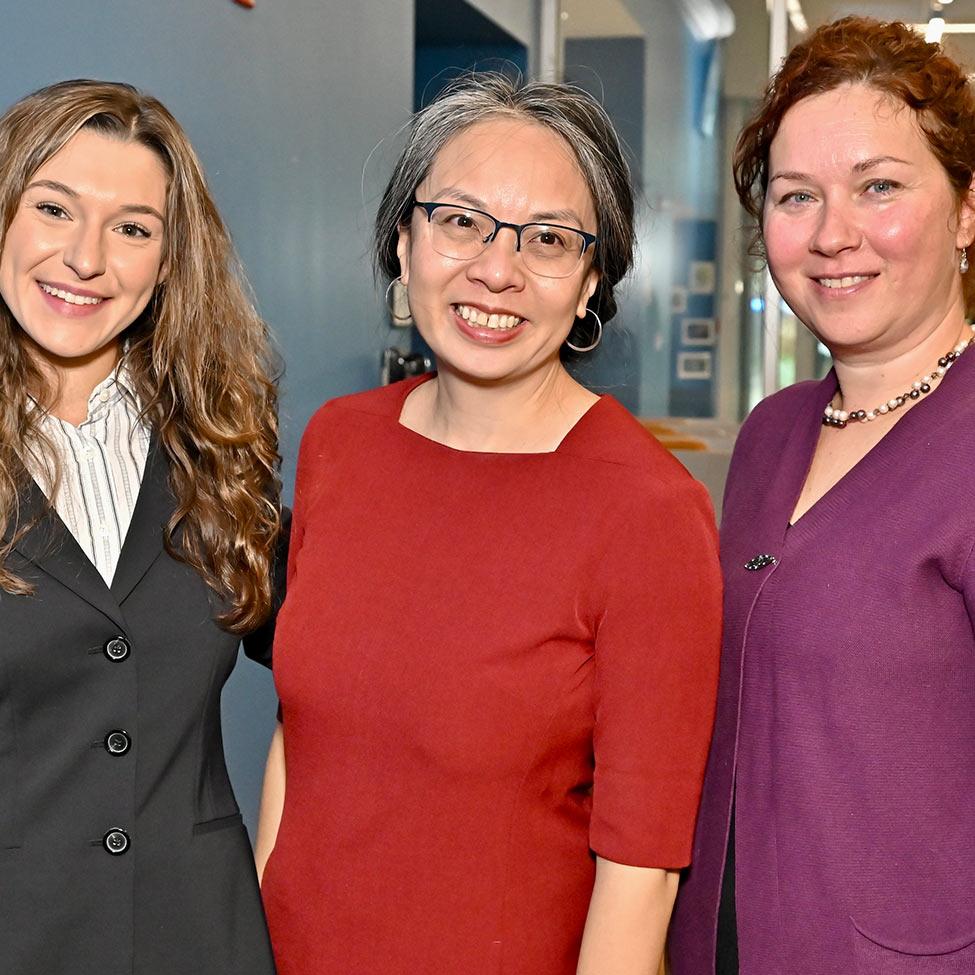
“This was a rewarding opportunity working with an advocacy organization as I learned the importance of forming relationships and partnering with other relevant organizations,” said Moraitis. “I want to especially thank Limarie Cabrera at WCA who took me under her wing during my internship, providing me with opportunities to learn about creative and innovative ways to express data.”
Scutelnicu-Todoran notes that these kinds of opportunities help set the Pace MPA program apart.
“Real-life learning experiences such as this provide our students with the opportunity to acquire practical skills, participate in policy making, network with potential employers and make a difference in their communities,” she said. “Once our students graduate, they have the necessary skills to be successful and secure a job in their area of expertise whether it’s in the nonprofit, public or healthcare industry.”
Real-life learning experiences such as this provide our students with the opportunity to acquire practical skills, participate in policy making, network with potential employers and make a difference in their communities.
And in learning these skills, students are empowered to enact real change. As a result of the survey, WCA is advocating for Westchester County to earmark $125,000 in the 2023 budget to establish a digital equity and inclusion director position. Additionally, WCA has created a digital access workgroup, consisting of school district officials, representatives from country departments and community organizations, children’s advocates, and local elected officials to spearhead initiatives to increase and improve digital access and literacy for Westchester families. Additionally, WCA has launched awareness campaigns to notify families of available resources and trainings.
“Collaborating with stakeholders in the county who are also passionate about digital equity enlightened me on the power of working together to bring forward meaningful change,” said Moraitis, who hopes to work for a nonprofit focused on youth social-emotional wellness upon her graduation in December. “I look forward to putting what I have learned into practice moving forward.”
